#Finnish Documentary Films
Explore tagged Tumblr posts
Text
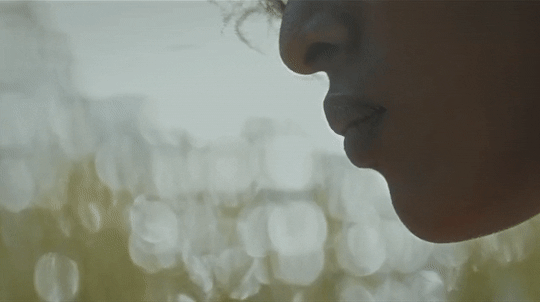
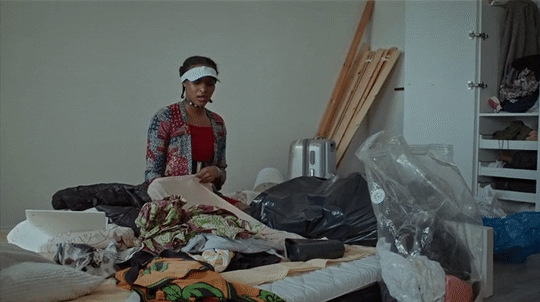







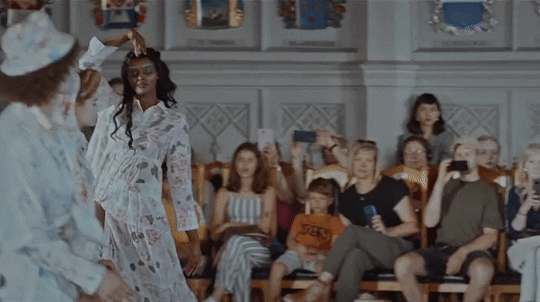
KELET (2020) dir. Susani Mahadura Kelet is a young Somali trans woman who dreams of becoming a Vogue model. Leaving her family in Manchester to return to her childhood home in Finland, she draws on the support of her friends in the ballroom community to immerse herself in Helsinki's glamour while building a new life for herself, facing her fears and her past, and following her dreams. (link in title)
#lgbt cinema#trans cinema#kelet#kelet 2020#finnish cinema#lgbt#trans#transgender#finland#documentary#lgbt movie#trans movies#finnish movie#lgbt film#trans film#finnish film#lgbt media#trans media#Susani Mahadura#2020#2020s#2020s movies#2020s cinema#2020s films
111 notes
·
View notes
Text

Favorite New-to-me Films—June ‘24
(listed in order pictured above, L to R)
READ on BELOW the JUMP!
The White Moth (1924)
[letterboxd | imdb]
Synopsis: Mona (Barbara La Marr), an American girl in Paris, attempts to throw herself into the Seine. She is rescued by the famous dancer Gonzalo Montrez (Charles de Rochefort), who gives her a job in his new act, where she will dance as The White Moth. Mona is a massive success and attracts the attention of the young, handsome, and wealthy Doug Morley (Ben Lyon). Unfortunately, Doug is already engaged to a society girl. As a solution, Doug’s brother, Vantine (Conway Tearle), whisks Mona away and marries her himself. Vantine is a cynical middle-aged bachelor and fails to see that Mona is genuinely in love with him. Hard feelings ensue.
The White Moth is an engaging and outrageous melodrama. I’ve become a big fan of Barbara La Marr over the years and this film illustrates her strong talent for pantomime. La Marr’s life and career were tragically short, and I wish she had had the chance to do more comedy. Aside from La Marr, a highlight of The White Moth is Mona’s rival, played by Josie Sedgwick. To my knowledge this is the first movie I’ve ever seen her in, but Sedgwick matches La Marr’s energy perfectly and the movie could only have been improved if they had shared more screen time!
——— ——— ———
Ritual Clowns (1988)
[letterboxd]
This short documentary by artist and filmmaker Victor Masayesva Jr. focuses on the traditional roles of Hopi clowns. Ritual Clowns is richly interwoven conversation about indigenous knowledge and colonizer “knowledge.” Masayesva’s layer cake of video footage, graphic art, animation, music, and voice-over is inventive, educative, and entertaining. I’m really looking forward to watching/reading more of Masayesva’s work!
——— ——— ———
Trip to Mars (1924)
[letterboxd | imdb]
Synopsis: Max plans on sending Ko-Ko off to Mars and Ko-Ko is less than enthused. Ko-ko plots his revenge in advance and so both Ko-Ko and Max end up hurtling through space.
Whenever I recommend an “Out of the Inkwell” short in these round-ups, I’m never sure how hard of a sell is needed! In my experience, Fleischer cartoons are usually crowd-pleasers (even in the 2020s) and the OOTI shorts rarely disappoint. Anyway, Max and Ko-Ko riding back to earth together was adorable.
——— ——— ———
Righting Wrongs / 執法先鋒 (1986)
[letterboxd | imdb]
Synopsis: A crusading lawyer (Yuen Biao) turns vigilante and uncovers a troublingly deep collusion between organized crime and the criminal justice system in Hong Kong. A dedicated cop (Cynthia Rothrock) earnestly trying to do her job, discovers the lawyer’s double life and has to confront the corruption of the system she believes in.
Honestly, no short synopsis can capture how much goes on in Righting Wrongs. Corey Yuen and crew do not shy away from how serious the premise is and the film has a lot of gravity while also managing to be a stunt bonanza. So, while I do recommend this one, it’s with the caveat that Righting Wrongs has a high body count (including children).
This may be the best performance I’ve seen from Rothrock yet. It’s so frustrating that she hasn’t been given this quality of material here in the US!
——— ——— ———
Winners & Sinners (1983)
[letterboxd | imdb]
Synopsis: Teapot, Curly, Rookie, Vaseline, and Exhaust Pipe are a gaggle of petty criminals who become friends while serving time. Upon release, they go into business together as The 5 Star Cleaning Service. Despite their best efforts at keeping their respective noses clean, they get dragged into a counterfeiting operation that’s gone south and link up with a cop who was clearly born under an unlucky star (Jackie Chan).
The crew assembled around Sammo Hung and Jackie Chan in the 1980s was unparalleled.
Winners & Sinners is predominantly a comedy with some martial arts (and Jackie Chan rollerblading) thrown in as a treat. The balance of action and comedy is perfect here. Jackie Chan’s role in the film isn’t really crucial, though the execution of misfortune dogging his every step is entertaining enough that you’re not left questioning his inclusion.
All around Winners & Sinners was such a fun watch! We caught the dubbed version on tubi. (The dub is genuinely good and funny!) Fair warning tho: a tiny turtle meets a gruesome end about halfway through the movie.
——— ——— ———
Sun, Moon, and Feather (1989)
[youtube| spiderwoman theater]
Synopsis: Three sisters from Red Hook, Brooklyn take us on a journey through their Kuna/Rappahannock family history. Lisa, Gloria, and Muriel playfully mix up musical numbers, miniatures, and home movies with their recollections of their upbringing.
I absolutely adored this and I’m so grateful that one of the video’s directors, Bob Rosen, uploaded it to his youtube (linked above)! Muriel, Gloria, and Lisa (a.k.a. Sun, Moon, and Feather) are the founders of The Spiderwoman Theater and, seeing as theatrical performance is a transient art, it’s a wonderful thing that the sisters worked with Rosen and Jane Zipp to thoughtfully translate their work to video form. Watching this video really felt like a condensed/sublimated succession of weekend afternoons spent with your favorite aunties.
——— ——— ———
Three Women (1924)
[letterboxd | imdb]
Synopsis: Debt-ridden society climber Edmund Lamont (Lew Cody) finds his next mark in the ultra-wealthy Mabel Wilton (Pauline Frederick). Mabel, superficial and sensitive about the onset of her middle-age, falls for the cad. Her daughter Jeanne (May McAvoy) is away at school in California, where she has a devoted admirer in med student Fred Armstrong (Pierre Gendron). Jeanne arrives in New York on a surprise visit to her mother. This displeases Mabel, who is preoccupied with chasing youth and her new lover. However, when Lamont meets Jeanne, he begins pursuing her on the side. When the women find out about the two-timing, Mabel consents to Jeanne and Lamont’s marriage. It doesn’t take long, of course, for Lamont to start seeing another woman, Harriet (Marie Prevost). Lamont’s betrayal comes to light just as Fred has arrived back in town to find his girlfriend married to another man. All this culminates in a violent end for Lamont.
I mentioned this in the latest installment of Lost, but Not Forgotten,* but I took time this month to correct my lack of exposure to Pauline Frederick’s surviving films and became an instant devotee of her work. Frederick is fantastic in Three Women and, perhaps if the film was stronger overall, her performance would be commemorated as one of the great moms of film drama (up there with Stella Dallas and Mildred Pierce). Having said that, you can probably gather that this film doesn’t match Ernst Lubitsch’s best work, but Three Women is still a quality film and has its share of “Lubitsch touch” hallmarks.
Pierre Gendron and May McAvoy come off as very sweet and genuine and Marie Prevost decidedly does not. Prevost is so delightful when she plays a jerk and it did seem a little awkward how minor of a character Prevost’s Harriet is. However, Prevost gets way more time as a rascal in Lubitsch’s The Marriage Circle (1924), which I made gif/still sets a few months ago.
*The LbNF film was Two Kinds of Women (‘22), this film is Three Women (‘24) and in 1920 Pauline Frederick starred in a film called The Woman in Room 13. Which means that I must announce, with great regret, that Frederick did not make a film in 1926 called “These Women Four”, but by the laws of inflationary language she should have.
——— ——— ———
Smouldering Fires (1925)
[letterboxd | imdb]
Synopsis: Jane Vale (Pauline Frederick) has dedicated her life to running the company she inherited from her father. This dedication has paid dividends, though she still faces disrespect from employees with regressive ideas about gender. When one of her employees, Robert (Malcolm MacGregor), challenges her and criticises her management, to everyone’s surprise, she promotes him. The two work closely and productively together and strong feelings emerge—leading them to a hasty wedding. When Jane’s younger sister Dorothy (Laura La Plante) arrives for a visit, an immediate attraction develops between her and Robert, which leaves them both deeply uncomfortable. They try to bury their feelings out of respect for Jane, but eventually Jane sees the truth. Understanding that Robert married her more out of duty and dedication than love, Jane puts on a tragic charade to allow for the dissolution of their marriage and a guilt-free union for Robert and Dorothy.
This was my favorite of the three Pauline Frederick movies I watched this month, though her work is praiseworthy in all of them. In Smouldering Fires, Frederick is the beating heart of the film. Her character explores more of what life has to offer after devoting most of her life to work, then suffers immaculately out of love for her husband and sister. That emotional journey is rendered with heartbreaking sophistication by Frederick. I now totally get why Frederick was so beloved in the 1910s/20s and my disappointment that more of her films haven’t survived is endless. Peak cinema was and still is the transcendent suffering of a woman in her late thirties. (This is only partly an overstatement.)
——— ——— ———
Cinema Fouad (1993)
[letterboxd]
Synopsis: A short documentary profile of Oscar, a Syrian trans woman living in Beirut. She muses over her complicated life as a domestic worker/dancer/soldier and her relationship to cinema and media while going through her day-to-day activities.
Despite the filmmakers being overbearing and intrusive at times, the portrait of Oscar really shines through. She is such a compelling personality and I’m so glad this film exists!
——— ——— ———
Cross of Love / Rakkauden risti (1946)
[letterboxd | imdb]
Synopsis: One stormy night, a man is washed up on an island with a lighthouse. A raving old man (Oscar Tengström) tries to shoot him, but he’s saved by the young keeper. Later, the keeper tells the old man’s story to the rescued man. Years ago, the old man was the keeper of the lighthouse—living in isolation with his daughter, Riita (Regina Linnanheimo). A wealthy consul (Ville Salminen) drifted to the island after boat trouble and Riita was quickly smitten. The consul convinced her to leave the island with him, in spite of her father’s disapproval. Once in the city, the consul revealed his true colors and assaulted Riita. Feeling that she could not return to her father and with nowhere else to go, Riita began working as a prostitute. After a chance meeting with a promising young artist, Henrik (Rauli Tuomi), Riita became his model and muse. They fell in love and Henrik’s career as a painter was about to pop off. Unfortunately, Riita’s father arrived unexpectedly, leading Riita and the consul to stage a fake wedding to comfort the old man. When Henrik found Riita at the consul’s apartment and learned that she was once a prostitute, he viciously rejected her. Her father sailed back to the lighthouse, happy that his daughter was living a legitimate life. Riita, inconsolable after the loss of Henrik, took her own life. Returning to the present, we now know the rescued man is none other than Henrik and that the old man has been driven mad at the loss of his daughter.
I’ve said it before and I’ll say it again: Tulio don’t miss. Wondering as I watch more Tulio-Linnanheimo collaborations if I will ever get to one where Linnanheimo’s character survives the film?
——— ——— ———
As always, if any of these films catch your eye, but you need specific trigger/content warnings, don’t hesitate to ask for them!
——— ——— ———
Last month, I complained about my relatively poor luck in new-to-me movies, but this month more than made up for it and it was hard to narrow this list down! Therefore, I have a few honorable mentions:
One Wet Night (1924) [letterboxd | imdb] Funny short that could have used Alice Howell more effectively
Musical Memories (1935) [letterboxd | imdb | UCLA’s youtube] UCLA made a new restoration of this Fleischer-animated jukeboxy musical short and it looks great. I love seeing Max Fleischer’s technological innovations in all their glory!
The Magic Crystal (1986) [letterboxd | imdb] An absolutely off-the-wall action-adventure-family-comedy about ancient aliens in Greece and a little boy vacationing from Hong Kong who befriends one of them. Honestly, the more I think back on this wacky film, the more I appreciate it. Special marks for the battle-ready mom who doesn’t want you to interrupt her stories.
——— ——— ———
This month was a struggle, but I’m happy to report that my Salomé cosplay is very close to completion and it will definitely be photographed/written up/posted soon! Making this wig from scratch has been a series of challenges (not limited my inflamed finger joints) so I’m glad that all that detailed handiwork is just about finished!

——— ——— ———
Earlier in the post I mentioned that the most recent installment of Lost, but Not Forgotten went up:
Two Kinds of Women (1922)

——— ——— ———
After finishing the great Unthinking Eurocentrism by Ella Shohat and Robert Stam, I constructed an annotated list of films mentioned in the book as a reference for myself and anyone else who might find it useful.

It’s both on letterboxd and on imdb.
——— ——— ———
And I also put together a little post about the Audibert process, exemplified with stills & gifs from Maurice Audibert’s experimental film Étude de la lumière (1923)

[All Audibert gifs/stills here]
——— ——— ———
The other themed gif/still sets I put together this month include:
They Came to a City (1944)
[which I talked about in my April ‘24 round-up]

Desert Hearts (1985)

Intohimon vallassa (1947)
[which I talked about in my March ‘24 round-up]

The White Moth (1924)

——— ——— ———
I’ve already got some gif and still sets arranged for July, but this month I’ll mostly be focusing on finally finishing the Salomé cosplay!
Happy viewing!
☕Appreciate my work? Buy me a coffee! ☕
#roundup#month in review#movie review#film recommendation#movie recommendations#cinema#filmblr#1920s#1980s#1990s#1940s#finnish film#american film#silent cinema#classic film#classic movies#film#silent film#silent movies#animated movies#animation#fleischer studios#hopi film#rappahannock film#kuna film#lebanese film#documentary#melodrama#experimental film#ernst lubitsch
8 notes
·
View notes
Text
Tony Halme Finnish Viking

Tony Christian Halme (January 6, 1963 – January 8, 2010) was a Finnish multi-talented and controversial figure: a professional boxer, show wrestler, actor, writer, musician and member of parliament. He was admired and hated, but few remained indifferent to him.
Halme came to the attention of the Finnish public in 1993 through the TV show Gladiaattorit under the name "Viikinki". Before this, he had already made a career as a show wrestler in the United States and Japan, his best known character being the WWF's "Ludvig Borga" – a Finnish anti-hero who despised the American way of life.

Childhood in the Shadows Halme's life did not start easily. His father left the family when Tony was six months old. His mother became an alcoholic and the home environment was chaotic. His brother became the main support for young Tony. Halme experienced serious bullying at school and was forced to leave his childhood home at the age of 16.
To counterbalance these difficult experiences, he found exercise and especially bodybuilding. As a young adult, he dreamed of Hollywood – and decided to make his dream come true. In the 1980s, he moved to the United States and worked as a bodyguard and stuntman, among other things, before the rise of show wrestling and boxing.

In the ring, on the ring and in front of the camera In the world of show wrestling, Halme achieved fame under the name Ludvig Borga. Although his career in WWE was short-lived, he achieved significant titles in Europe and Japan. He wrestled against the Steiner brothers, among others, and used the Maamme song as his entrance music. He also appeared in films such as Die Hard – Angel of Revenge.
As a professional boxer, Halme won the Finnish heavyweight championship and even appeared at Caesars Palace in Las Vegas – the only Finn ever. It was later revealed that some of his early career matches were fixed, which overshadowed his achievements.
Halme also fought in mixed martial arts: in the UFC, he suffered a defeat to Randy Couture in 1997, but was still the first Finn in the UFC cage.

A surprise name in politics In the 2003 parliamentary elections, Halme received over 16,000 votes on the Finns Party list in the Helsinki constituency – more than many of the leading names in the ruling parties. His maiden speech on veterans’ funeral expenses even received praise from Paavo Lipponen, but his rhetoric was often pointed and controversial.
Halme’s career in parliament ended prematurely when his health collapsed. In 2003, he accidentally shot himself while under the influence of alcohol and amphetamines, which resulted in permanent brain damage. After this, his political career waned. He finally received a disability pension in 2007.

Descent into darkness The cycle of illness, addiction and loneliness accelerated. Halme suffered from cirrhosis of the liver and was admitted to psychiatric care. In 2009, he was arrested for drug use and possession. At the end of his life, he was physically weak, mentally exhausted and withdrawn from the public eye.
Halme was found dead in his home in Helsinki on January 10, 2010 – just two days after his 47th birthday. The cause of death was determined to be a self-inflicted gunshot wound. However, the death was not officially confirmed as a suicide, as the police invoked the secrecy law
Memory and legacy Tony Halme published several books and recorded music during his life. His posthumously published book Testamentti revealed the disappointments of a political career and his longing to make an impact on society. A documentary film, Viikinki, was released about Halme's life in 2022.
Friends and colleagues remember Halme as a contradictory figure. Timo Soini, the chairman of the Finns Party, said that he was "a true Finnish man - with good and bad sides".
Tony Halme left behind a story that cannot be reduced to the pages of sports or politics. He was the hero and antihero of his own life, a child dressed as a Viking who never fully escaped his past.

Tony "Viikinki" Halme – Kohun, kivun ja karisman mies
Tony Christian Halme (6. tammikuuta 1963 – 8. tammikuuta 2010) oli suomalainen monilahjakkuus ja ristiriitainen hahmo: ammattilaisnyrkkeilijä, showpainija, näyttelijä, kirjailija, muusikko ja kansanedustaja. Häntä ihailtiin ja vihattiin, mutta harva jäi häntä kohtaan välinpitämättömäksi.
Halme nousi suomalaisen yleisön tietoisuuteen vuonna 1993 TV-ohjelma Gladiaattorit kautta nimellä "Viikinki". Tätä ennen hän oli jo tehnyt uraa Yhdysvalloissa ja Japanissa showpainijana, tunnetuimpana hahmonaan WWF:n "Ludvig Borga" – suomalainen antisankari, joka halveksi amerikkalaista elämäntapaa.
Lapsuus varjojen keskellä
Halmeen elämä ei alkanut helposti. Hänen isänsä jätti perheen, kun Tony oli puolivuotias. Äiti alkoholisoitui ja kotiolot olivat kaoottiset. Veljestään tuli nuoren Tonyn tärkein tuki. Halme koki vakavaa koulukiusaamista ja joutui jo 16-vuotiaana jättämään lapsuudenkotinsa.
Kovien kokemusten vastapainoksi hän löysi liikunnan ja erityisesti kehonrakennuksen. Nuorena aikuisena hän haaveili Hollywoodista – ja päätti toteuttaa unelmansa. 1980-luvulla hän muutti Yhdysvaltoihin ja toimi muun muassa henkivartijana ja stunt-miehenä ennen showpainin ja nyrkkeilyn nousukiitoa.
Kehissä, kehässä ja kameran edessä
Showpainimaailmassa Halme saavutti mainetta nimellä Ludvig Borga. Vaikka ura WWE:ssä jäi lyhyeksi, hän saavutti merkittäviä titteleitä Euroopassa ja Japanissa. Hän paini muun muassa Steinerin veljeksiä vastaan ja käytti sisääntulomusiikkinaan Maamme-laulua. Hän myös esiintyi elokuvissa kuten Die Hard – Koston enkeli.
Ammattilaisnyrkkeilijänä Halme voitti Suomen raskaan sarjan mestaruuden ja esiintyi jopa Las Vegasin Caesars Palacessa – ainoana suomalaisena koskaan. Myöhemmin paljastui, että osa hänen alku-uransa otteluista oli ennaltasovitettuja, mikä varjosti saavutuksia.
Halme otteli myös vapaaottelussa: UFC:ssä hän kärsi tappion Randy Couturelle vuonna 1997, mutta oli silti ensimmäinen suomalainen UFC-häkissä.
Politiikan yllätysnimi
Vuoden 2003 eduskuntavaaleissa Halme sai perussuomalaisten listalta Helsingin vaalipiirissä yli 16 000 ääntä – enemmän kuin monet valtapuolueiden kärkinimet. Hänen neitsytpuheensa veteraanien hautauskuluista sai jopa Paavo Lipposelta kehuja, mutta hänen retoriikkansa oli usein kärjekästä ja kohuja herättävää.
Halmeen ura eduskunnassa päättyi ennenaikaisesti hänen terveytensä romahdettua. Vuonna 2003 hän ampui itseään vahingossa ollessaan alkoholin ja amfetamiinin vaikutuksen alaisena, mikä johti pysyvään aivovaurioon. Tämän jälkeen hänen poliittinen uransa hiipui. Hän sai lopulta työkyvyttömyyseläkkeen vuonna 2007.
Laskeutuminen pimeyteen
Sairauksien, riippuvuuksien ja yksinäisyyden kierre kiihtyi. Halme kärsi maksakirroosista ja joutui psykiatriseen hoitoon. Vuonna 2009 hän jäi kiinni huumeiden käytöstä ja hallussapidosta. Hän oli elämänsä lopussa fyysisesti heikko, henkisesti väsynyt ja vetäytynyt julkisuudesta.
Halme löydettiin kuolleena kodistaan Helsingissä 10. tammikuuta 2010 – vain kaksi päivää 47-vuotispäivänsä jälkeen. Kuolinsyyksi todettiin itse aiheutettu ampumavamma. Kuolemaa ei kuitenkaan virallisesti vahvistettu itsemurhaksi, sillä poliisi vetosi salassapitolakiin.
Muisto ja perintö
Tony Halme julkaisi elämänsä aikana useita kirjoja ja levytti musiikkia. Hänen postuumisti ilmestynyt kirjansa Testamentti paljasti poliittisen uran pettymykset ja kaipuun vaikuttaa yhteiskuntaan. Halmeen elämästä julkaistiin vuonna 2022 dokumenttielokuva Viikinki.
Ystävät ja kollegat muistavat Halmeen ristiriitaisena hahmona. Perussuomalaisten puheenjohtaja Timo Soini sanoi hänen olleen "aito suomalainen mies – hyvine ja huonoine puolineen".
Tony Halme jätti jälkeensä tarinan, jota ei voi typistää vain urheilu- tai politiikkasivuille. Hän oli oman elämänsä sankari ja antisankari, viikingiksi pukeutunut lapsi, joka ei koskaan täysin päässyt pakoon menneisyyttään.

3 notes
·
View notes
Text

(["How do you feel about homosexual people?"]
"Well. I certainly do not judge them." 1975)
I didn't want to put too many links in my latest reblog, but this is my Interest, so, here are two great films from the 60s and 70s:
Oletko sinä...? (Are you...?), a dramatized documentary first made in 1969, when homosexual acts were still illegal in Finland. Was not released until "homosexual incitement" became legal in 1999. In Finnish.
Homoseksuaalisuus - eräs vähemmistö (Homosexuality - a minority among others), a documentary released in 1975. Homosexuality is now legal, but how do people feel about it? In Finnish and in Swedish.
#writing this in english just in case - maybe someone is interested even though there are no english subs#lgbt history#finnish history
91 notes
·
View notes
Text
Finnish cinema
Finnish cinema, while less globally recognized than its Scandinavian counterparts from Sweden and Denmark, has a rich history and a distinctive style that reflects the culture, values, and history of Finland.
History: Finnish cinema dates back to 1907 with the creation of the first Finnish film production company, Suomi-Filmi. It produced many silent films and early talkies, establishing the beginnings of a national cinema.
Themes: Finnish films often explore themes of national identity, history, and the tension between traditional rural life and modern urban living. There's also a distinctive engagement with nature, fitting for a country known for its forests and lakes.
Social Realism: Like much of Nordic cinema, Finnish films are known for their social realism. They often tackle societal issues with a focus on the everyday experiences of ordinary people. This has led to a cinematic tradition that’s both grounded and poignant.
Humor: Finnish cinema has a unique sense of humor. "Finnish deadpan" is a style of comedy characterized by minimalist, matter-of-fact delivery and absurd situations, often combined with a melancholic tone. Notable directors in this vein include Aki Kaurismäki, whose films are internationally acclaimed.
Notable Films and Directors: In addition to Aki Kaurismäki, notable Finnish directors include his brother Mika Kaurismäki, Renny Harlin (known for Hollywood action films), and Jalmari Helander (known for his action and fantasy films). Some internationally acclaimed Finnish films are "The Man Without a Past", "Rare Exports: A Christmas Tale", and "Tom of Finland".
International Recognition: Finnish films have received international recognition and won awards at prestigious festivals, such as the Cannes Film Festival. However, they are not as widely exported or recognized as films from some other European countries.
Modern Finnish Cinema: Modern Finnish cinema is diverse, with films ranging from historical dramas to dark comedies, action films, and introspective character studies. The industry also produces high-quality documentaries.
In summary, Finnish cinema is characterized by its blend of social realism, distinctive humor, engagement with national themes, and a commitment to telling stories about ordinary people and their lives.
71 notes
·
View notes
Text
youtube
MOVIES I WATCHED THIS WEEK (#196):
4 UNUSUAL DOCUMENTARIES:
🍿 KEDI (2016) is a love song for a beautiful city and its wonderful stray animals. Istanbul is known for its millions of street cats who peacefully co-exist with the humans who manage to feed and care for them. [With one glaring negative: There's no mention of any attempts for spaying and neutering the huge population!]. (TRAILER ABOVE).
It's a very simple film, basically shot after shot of different people petting a lot of different cats. So it's charming and calming. 7/10. [*Female Director*]
🍿 JOE HISAISHI IN BUDOKAN, 25TH ANNIVERSARY STUDIO GHIBLI CONCERT, was unexpectedly my happiest movie experience of the week. It is my second real-life affair from Sunada Mami (After her other Ghibli bio-pic, 'The Kingdom of Dreams and Madness'). A magnificent 2008 concert with full orchestra and 2 large choruses, (with as many as 400+ musicians). They played for 2 hours bits from the many scores which Hisaishi had composed for the films of his friend Hayao Miyazaki. Simply magical. 9/10. [*Female Director*]
🍿 BALLYMANUS (2022) is an Irish documentary about a German sea mine that exploded on a remote beach in 1943 and which killed 19 youngsters of its small community. It's interesting mostly for the feel of the rustic village and its people, gently-told.
🍿 YOOPER CREOLES: FINNISH MUSIC IN MICHIGAN'S COPPER COUNTRY (2019) is about old traditions of folk music, which were developed by the many ethnic communities in the upper peninsula in Michigan. Part and continuation of the Alan Lomax archivist projects.
🍿
SPRING IN A SMALL TOWN (1948) was voted the best Chinese film of all time by the Hong Kong Film Critics Society. It was made during the Chinese Civil War, but was a surprisingly modern, feminist tale of an unrequited love in a village setting. It's a love triangle with an obedient but unhappy wife, a bed ridden husband, and his doctor friend who comes for a first unplanned visit in 10 years. It's a small lyrical and intimate miracle, worth discovering. It reminded me very much of David Lean's simultaneous story 'Brief Encounter'.
🍿
CONTINUING MY OCCUPATION WITH ISABELLE HUPPERT X 2:
🍿 My second film by Jean-Paul Salomé (after last week's 'Mama Weed'), THE SITTING DUCK (2022). Based on a true story, it's a feminist corporate thriller about a steel-willed top executive whistleblower, who was viciously attacked for her steadfastness. It's basically Huppert's movie. 7/10.
🍿 LOUDER THAN BOMBS, my 3rd uninspired drama by Joachim Trier, his first outside of his native Norway. It's a family drama about widower Gabriel Byrne, and his two sons, who are trying to come to grips with the suicide-by-car death of Isabelle Huppert, playing here a scarred war zone photographer. Unfocused alienation, dislocation, and miscommunication, it's about the difficult dynamics of feeling lost. 5/10.
🍿
"A doctor?... The boy is drunk!...
YOU ARE NOT ALONE was a landmark coming-of-age story about 2 boys who fall in love at a Danish boarding school in 1978. It was controversial in that the relationship between the 12 and 16 year old boys were shown honestly and naturally in a Scandinavian style (nudity, kisses, genuine affection - but no explicit sex). Olsen Banden's Ove Sprogøe plays the strict 'bad guy' headmaster.
It gave me a shot of sentimental nostalgia for that exact time and place. Even though I was 12-15 older than the boys, it rang so true: I remember the clothing, hair styles, cars, roads and ice cream shops, the Kim Larsen songs, the moods and attitudes of that time. It's like re-living it again. Wow! 7/10.
🍿
SORRY WE MISSED YOU (2019), my 6th (and probably last!) powerful gut-punch by British socialist Ken Loach. A fantastic piece of Neo-realist social drama, but one which is so-so depressing that it took me about a week to sit through it. I doubt I'll be able to follow up with more of the same. A working class family struggles mightily to stay floating above water, and is constantly defeated. Since the Reagan-Thatcher Axis of Evil, the infrastructure in England had been degraded as thoroughly as the one in the US, and the only option left for the ordinary poor is to go and fuck off. It's a dreary, anxiety-inducing nightmare of train-wrack coming toward us, unstoppable, merciless and uncaring. 8/10.
🍿
2 FROM BRAZIL:
🍿 THE END OF MAN (1971) is an unusual and bizarro Brazilian low-budget religious fairy tale. A naked stranger with very long fingernails emerges out of the sea, 'Messiah'-like, to influence everybody he meets. It's made by a pioneer of Brazilian horror genre, in the local B-movies style called 'Mouth of Garbage Cinema'. It's like an early Jodorowsky but without the drugs and the philosophy and also without Alejandro's considerably-mad talents. 3/10.
🍿 ELETRODOMÉSTICA (2005), my 3rd by Brazilian director Kleber Mendonça Filho (After 'Bacurau' and 'Neighboring Sounds'). A stay at home housewife is going about her day, taking care of her 2 kids, cleaning and cooking, while also finding time to toke a hit of 'Mota' and to ride the spinning cycle of the washing machine for a quick release.... It's easy to recognize the same town as his first feature. Cute.
🍿
First watch: Sam Packinpah's 1974 neo-Western BRING ME THE HEAD OF ALFREDO GARCIA. A rough, desperate treasure hunter and his prostitute lover driving a beat-up jalopy to look for the head of a dead gigolo. Dirty Mexican mise-en-scène. Kris Kristofferson plays a raping biker-thug. 3/10
RIP, KRIS KRISTOFFERSON!
🍿
“I love you with all my love...”
Grandiose genius Coppola directed my all-time favorite film ('The Conversation'), as well as my all-time favorite trilogy, so I was looking forward to finally see MEGALOPOLIS, his new end-of-life Opus Magnum. But this bloated, didactic, "operatic" epic about Shakespearean "Great men" like Cicero and Howard Roark and Cesar Catilina passed over my head until boredom come. The bullshit metaphors about the fall of the Roman Empire were indulgent and excessive. I can't see where did all the money go. I liked that Talia Shire played again the power-hungry matriarch, and I liked that Dinah Washington started singing 'What a different a day make' at a certain point, but otherwise, I had a hard time just finishing it.
🍿
Stanley Kubrick directed only 12 features and 4 shorts during his 50-year career. FLYING PADRE (1951) was his second film. A documentary about a Catholic priest in rural New Mexico who flies his own Piper Cub plane to administer to his flock. It's told in voice-over, without actual sound.
🍿
2 CANADIAN SHORTS:
🍿 PEEP SHOW, an early short (1981) by Canadian Atom Egoyan. A man at a photo booth tries to take some snapshots, but the photo booth misbehaves...
🍿 THE RIDE (1963), a Buster Keaton inspired joke of a chauffeur dreaming about a toboggan ride, while waiting for his employer. 4/10.
🍿
My 2nd or 3rd re-watch of the very last episode of 'Succession'. With Open eyes, which is recognized now on some lists as the 'greatest TV episode of all time'. It's brutal all right, and proves to show that shoulder-slouching Kendall Roy was indeed a loser all along, a permanent Don Jr. Noted: It's interesting how the opening credit scene had been expanded from season to now. Also, how fluid and jerky was the camera work, full of "unfocused" blocking and cinéma vérité tricks. ♻️.
🍿
TIM WALZ IS WALKING HIS RESCUE DOG and being interviewed by the guy from 'We rate dogs'. 17 wholesome minutes of a guy who's not weird. Cute!
🍿
(ALL MY FILM REVIEWS - HERE).
3 notes
·
View notes
Text
youtube
The Terror of Morocco – The Road to Winter War 1939 (English subtitles)
Koko dokumentti nähtävissä Kotikinossa: https://kotikino.fi/video/details/70283302/278975332
(For the time being, the full documentary can be watched in Finland only.)
Pois leikattu jakso draamadokumentista Marokon Kauhu - Dokumenttielokuva suomalaisesta taistelijasta (julkaistu 16.3. 2024, levitys VL Media). Pääosassa: Pauli Poranen. Dokumentin sotilasasiantuntijana: Lauri Hietaniemi.
A deleted sequence from the docufiction The Terror of Morocco - Documentary Film about a Finnish Warrior (out 16 March 2024, distributed by VL Media/Finland). Starring: Pauli Poranen. Military expert for the documentary: Lauri Hietaniemi.
Lisätiedot tekijöistä, työryhmästä ym. videon lopputeksteissä.
Please, see the video end credits for full info on cast, crew, etc.
Kapteeni Aarne Juutilaisesta (1904-1976) tuli Kollaan taistelujen symboli Suomen talvisodassa 1939-40. Tarkka-ampuja Simo Häyhä, "Valkoinen kuolema", oli yksi Juutilaisen miehiä. Dokumenttifilmi kertoo, mikä Ranskan Muukalaislegioonasta lempinimensä saanut "Marokon Kauhu" oikein oli miehiään.
Captain Aarne Juutilainen (1904-1976), nicknamed "the Terror of Morocco" after his stint in the French Foreign Legion, became the symbol of the Battle of Kollaa in Finnish Winter War of 1939-40. The sniper Simo Häyhä, “the White Death”, was one of Juutilainen’s men. This documentary film is an account of Aarne Juutilainen’s life.
#Marokon Kauhu#Aarne Juutilainen#Talvisota#Winter War#1939#1940#Toinen maailmansota#Second World War#World War II#Kollaa#Karjala#Karelia#dokumenttielokuva#documentary film#haastattelu#interview#Pauli Poranen#Lauri Hietaniemi#Simo Häyhä#Simo Hayha#2024#Youtube
2 notes
·
View notes
Text
3 movies i saw this week and why you should watch them.
(this is my 260th post but the first one i use a title for.)
i hesitated to write this in french but i choose english to be understood by more people.
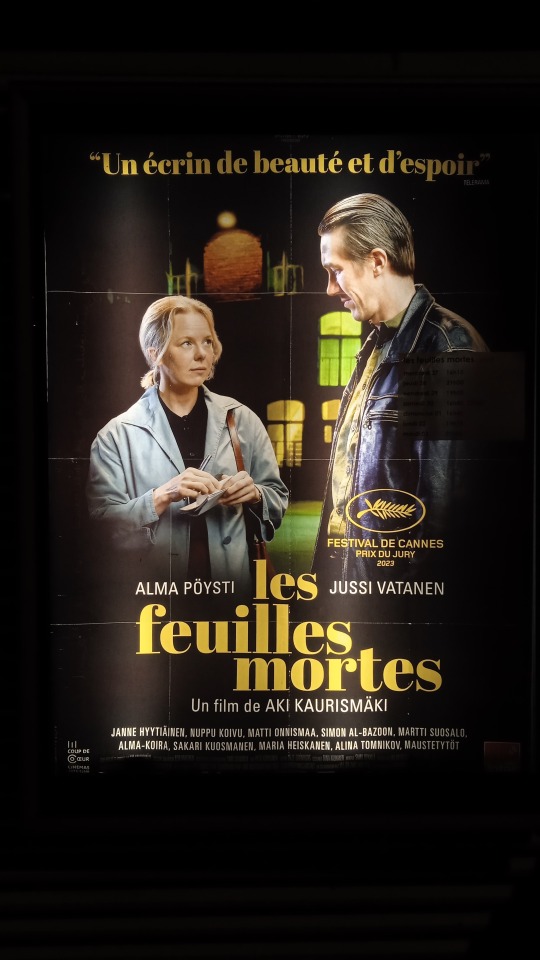
i'm starting with the first movie i have seen on monday evening with my mom : "kuolleet lehdet" by aki kaurismäki. so at first, we went there not really knowing what to expect, she had read me the summary just before we left and i almost didn't want to go. however, this movie is amazing. the cinematography and the colors are gorgeous and the characters really endearing. there are a lot of songs in finnish (both sang by characters and outside of the film) that gave this already slow and melancholic art piece several moments outside of time. what i love too is the reality of the characters, the situations : they are just two proletarian workers yet they are shown to be deserving to be the main characters. we see them working, being friendly with their colleagues, having fun with them but also facing exhaustion at the end of the day as well as being seen as negligible quantity and easily replaceable by their bosses. the relationship between the two main characters is really sweet as well as their relationships with their own friends and it shows love in a way i particularly love : there is no need to know the name of the other or to do romantic things, just being together and feeling happy with eachother is enough.

the second film i saw on wednesday night was "anatomie d'une chute" by justine triet, it had won the palme d'or at this year's cannes festival. so my mom and i went to see it, again i didn't really know what to expect except that there was actors i love in it and that it was a trial movie also about medias and how they make people percieve things. and this prize was so deserved, every actor and actress was incredible, some scenes were so well made, especially a play with sound and image as well as what we see, what movements did the camera and what it showed us. it sometimes got so close of a documentary more than a fictional movie. i have so many thoughts about it, truly one of the best movies of the year but many people talked about it so i can't really add anything new to say. but if you can, go watch it.
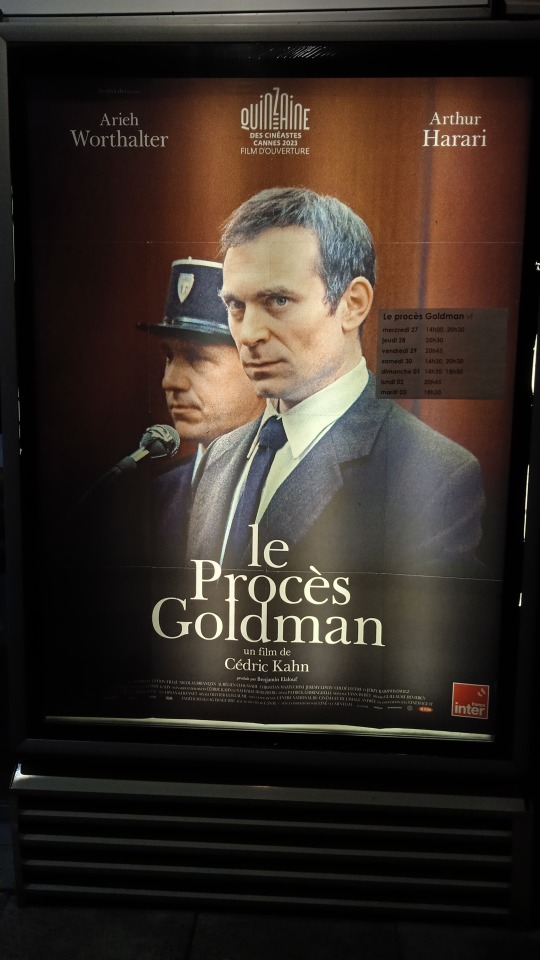
the last film i have seen this week was "le procès goldman", directed by cédric kahn. i saw it just yesterday, alone and i already knew pierre goldman's story very well, i learned about this movie in may in a french tv emission about cannes and have been really waiting to see it since. it is most certainly my favorite but for very personal reasons. the story seems very niche : it is a huis-clos, set in 1976, of the second trial of a far-left activist, son of jewish partisans from poland (and step-brother of a very popular singer, who is still the favorite personality of french people and has been so for years) who was accused of several robberies as well as the murders of two pharmacists, but if he admits the robberies, he claims his innocence for the murders. this movie is not only showing the faillures of the racist police and racist judiciary systems in france but also has very interesting conversations between the characters about being jewish and therefore racialized. but it also touches a subject that is so specific and personal, i never saw a movie talk about it : the feeling that when you come from a family that suffered and/or fought so much, you feel like no matter how much you fight, it will never be enough to live up to this history, even if you're not asked to. you feel like you never deserved to be born and live when you know what your family went through. there is a sentence he said that marked me : "i was born and died on the 22th june 1944.". to me, it is one of the best way the jewish experience in a racist society and racist country like france has ever been represented. and i really urge you, jewish or not, to go see it and especially if you are not so you can understand what it feels like a little bit more. the acting of everyone is superb, showing so well the intensity that reigns in this room, but the main actor, arieh worthalter, is phenomenal. the actors are well casted and look like their real life counterparts. the realisation is really beautiful even if there are around three or four places shown in the movie. i love how everything about the movie is simple : a basic white writing font on a black background giving us the contexte and the title, i think there is no music as well. the costumes are gorgeous too and i love how many details were put into the fabrics, patterns. i really want to meet the director to tell him how this movie made me feel so seen.
#les feuilles mortes#anatomie d'une chute#le procès goldman#pitié allez voir le procès goldman vraiment c'est une des meilleures description de ce que c'est d'être juif en france.#french side of tumblr#up the baguette#cinéma français#aki kaurismäki#fallen leaves#kuolleet lehdet#justine triet#festival de cannes#cinephile#french cinema#french stuff#french movie#jewish stuff#jewish history#judaism#jewish culture#communism#cédric kahn#pierre goldman#jean jacques goldman#jean-jacques goldman#arieh worthalter#jewish cinéma#jumblr
14 notes
·
View notes
Text
In October 2017, when the New York Times first published allegations against Harvey Weinstein, Australian director Kitty Green was on campus at Stanford University interviewing students for a film about sexual assault. “I had friends at the Weinstein Company so I immediately started texting them.” Within months she was shooting The Assistant, a drama about working for a movie mogul. It followed a day in the life of Jane, played by Julia Garner, whose boss is a sexual predator with a volcanic temper. He was never seen, only ever referred to as “him”, but was without a doubt modelled on Weinstein.
The Assistant became the definitive film of the #MeToo era: a horribly realistic portrait and a forensic examination of how a culture of complicity in some companies enabled men to abuse for years. Its release in early 2020 was a bit muffled. Because of Covid? Green nods. “Also, I think it was so raw. We shot it and released it quite quickly, so people were still almost afraid to speak about it.” Lately, she’s noticed its impact. On a recent trip to Japan, women told her it might have been set in an office there. In New York, where she lives, the city government uses The Assistant in its compulsory sexual harassment training.
Green’s latest, The Royal Hotel, is another #MeToo film, and another story throwing young female characters into a sexist, aggressive environment. “No agenda!” says Green. “But I always end up there somehow.” The Royal Hotel is the story of two American gap year backpackers, played by Garner and Jessica Henwick, who run out of money in Sydney. An agency finds them work in a remote mining town’s only pub. “You’re going to have to be OK with a little male attention,” warns the recruiter. When they arrive, someone has scrawled “Fresh meat” on the chalkboard outside the pub.
The Royal Hotel is inspired by a grim 2016 documentary directed by Pete Gleeson, about two Finnish backpackers who got jobs in an outback pub in Coolgardie – a town feminism never reached. The brazenness of the misogyny takes your breath away. What made Green want to adapt it? “It was the way the women handled the situation. They didn’t accept the men or their behaviour. They said no, stood up for themselves in little ways. That strength was interesting. Adapting it, I was thinking, ‘What do I want to pull out of it? For me it was really important that we said, ‘No, that’s not OK.’”
She goes on: “The Assistant was about acceptance of the system being rotten, about trying to speak up and realising you can’t. Approaching this one, I was like, ‘How can we make it a narrative about strength? How can we make it a film about women saying no?’”
Behind the bar at the Royal Hotel, the women endure endless microaggressions. The first time they meet the landlord, played by Hugo Weaving, he puts one of them in her place with the words: “You think you’re a smart cunt?” One regular sits at the bar night after night staring at one girl so creepily it makes the hairs prickle on the back of her neck. Another gets her name repeatedly wrong. The punters lock horns over who gets which girl first.
It’s a film about the corrosive effect of male entitlement. We see the environment through the eyes of Garner’s character. How safe does she feel? Is that guy staring creepily? Is she crazy for thinking he’s dodgy? “This is what we have to navigate as women,” says Green. “The decisions we make minute by minute, trying to figure out what’s a threat.”
The men don’t let up with the harassment but Green did not write in a full sexual assault. “I felt like this behaviour is enough. It was important that it never crossed the line. Otherwise male audience members could say, ‘Oh, that’s not us. We are not like that. Those men are villains and that’s not us.’ Instead, if it’s about behaviour that is very common, a joke here and a weird gaze there, then it’s harder to dismiss. We need to have a conversation about that behaviour. How we can stop it from escalating into sexual violence?”
The fact that no woman gets raped or murdered has baffled some audiences. When Green was raising finance, a few backers told her the film was missing something. “They wanted more violence, which is so crazy,” she says, wincing. She has been disturbed by some of the responses to the finished film, too. “We’ve gotten a lot of, ‘It simmers away but never reaches boiling point.’ I think there are a lot of reviewers, particularly male reviewers, who are waiting for that scene” – she mimics an explosion – “that really overt act of violence, be it rape or whatever. And I think that frustrates them. It’s awful, wondering what it could be that they not only expected, but desired. We’ve had enough of that in movies. We definitely don’t need that scene.” Green pauses. “That conversation has been interesting,” she says looking a bit pained. “And a little upsetting to be honest.”
I tell her that I can live without seeing another rape scene in a film. “Exactly. I don’t want to see it. We’ve seen it enough. The history of cinema is full of men making movies where they’ve included that. We don’t need to put up with it any more.”
Green decided to become a film-maker aged 11, and started making films in her back yard. “It’s just always what I wanted to do.” Both her parents are artists and teachers; it didn’t feel like an impossible goal. “No one told me I wasn’t allowed. My dad was always like, ‘If you want to do something, do it.’”
After graduating from film school, Green packed her camera and laptop and flew to Ukraine, where her mother was born. While living in Kyiv for two years, she shot her first documentary, Ukraine Is Not a Brothel. Later she moved to the US, directing the documentary Casting JonBenet, about the world’s obsession with the murder of the six-year-old beauty queen JonBenet Ramsey.
The Assistant was her first feature film. How difficult was it back in early 2018, I ask, getting funding to make a story inspired by Weinstein? “Impossible. It was still too fresh for people. Everyone was a little afraid to touch it. We’d have female executives read the script and say, ‘We’re going to make this! Trust me we’re going to make this movie!’ The next day I’d get an email saying, ‘I’m sorry, my boss used to work at X company and doesn’t feel it’s appropriate.’”
Have things have changed? Green nods. “I think it’s very different. We didn’t even have the language to talk about misconduct and harassment. I feel like it is definitely a safer world for everyone. But we still have a lot of work to do.”
6 notes
·
View notes
Text
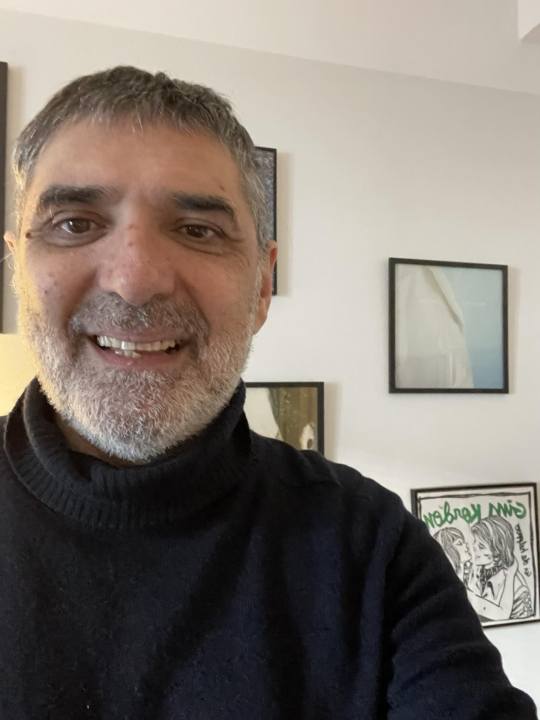
SOLITI 2023: THE END OF YEAR LISTS
Triani from Soliti
The Good Times Lovely Soliti releases from Ghosts on TV, Juppe, Stinako and Knife Girl.
Old Music Ennio Morricone – Quando l’amore e Sensualita Beach Boys – Friends George Michael – Older Felt discography The Songs of Bacharach and Costello was on constant rotation (my fave reissue of the year.) Teardrop Explodes – Culture Bunker box set Lana Del Ray – Norman Fucking Rockwell Rip Rig & Panic – I Am Cold Plush – More You Becomes You Neil Young – Chrome Dreams Stevie Wonder – Fulfilling His First Finale Joan Baez – Blessed Are Paul Weller – 22 dreams Sault discography Velvet Underground – Loaded Thelonious Monk – Straight, No Chaser Arthur Russell – Picture of Bunny Rabbit David Sylvian discography
New Music I didn’t think this year offered much until I put this list together. It’s been quietly fabulous.
Lana Del Ray – Did you know that there’s a tunnel under Ocean Blvd Kara Jackson – Why Does The Earth Give Us People To Love? Robert Forster – The Candle And The Flame SAZ – SOS Feist – Multitudes King Krule – Space Heavy Christine and the Queens – PARANOÏA, ANGELS, TRUE LOVE Overmono – Good Lies Ryuichi Sakamoto – 12 The Lemon Twigs – Everything Harmony John Cale – Mercy Bar Italia – Tracey Denim Sufjan Steven – Javelin Wilco – Cousin Sparklehorse – Bird Machine Amanda Brown – Eight Guitars Durand Jones – Wait Til I Get Over Lil Yachty – Let’s Start Here. Beach Fossils – Bunny ANHONI – My Back Was a Bridge For You To Cross Lankum – False Lankum Mitski – The Land Is Inhospitable and So Are We El Michels Affair & Black Thought – Glorious Game
Best tracks Everything But The Girl – Nothing Left To Lose Dexys – My Submission Lana Del Rey – A&W
Devendra Banhart – Sirens Kara Jackson – no fun/party Knife Girl – Estrogen Felt – Primitive Painters
TV, films books The Bear (TV series) The Last of Us (TV series) Mrs Davis (TV Series) The Last Movie Stars (TV Series) Welcome to Wrexham (TV Series) Dirty Harry movie box set (all five movies) Richard Jewell (Film) Crimes oF The Future (Film) Barbie vs Oppenheimer (loved both of these) The Exorcist (Film) Love to Love You, Donna Summer (documentary) Quentin Tarantino – Cinema Speculation (Book) Dylan Jones – Loaded: The Life (and Afterlife) of the Velvet Underground (Book) Alan Moore/Jacen Burrows – Neonomicon (Book) Collected Judge Dredd (Books) Sight & Sound (magazine) The Guardian (online) The Quietus (online)
This is a good thing My family and home life. It’s still my favourite place to be. Football in all its gross financial injustices, still remains a truly entertaining, all welcoming spectacle – a break from our realities. I spent a lot of my days obsessed with the beautiful game. My own team Tottenham’s reimagining as a team for the neutral under Ange Postecoglou. I’ve had a serious post-covid hangover about going out; crowds and especially going to concerts. But still this year I managed to catch a few shows. John Cale and Knife Girl at the Helsinki Festival was very special. Elvis Costello at Kulttuuritalo was a great way to spend an evening – I didn’t really want it to end (and this was also a rare date with my partner!) Emma Ruth Rundle, Sorry, Jake Xerxes Fussell were good festival experiences. I’m an eternal optimist with dreams that we can all get along, people can be who they wanna be and somehow humanity pulls together to save the planet. My dream state staves off the dark feelings that are increasingly hard to ignore.
This is a low The Israel demolition of Palestine in response to Hamas atrocities is a key world happening which will resonate for decades to come. British Conservatives and all right wing ideologues who – in collusion with the mainstream media – spend most of their time demonising refugees and the trans community. The public discussion around minorities in Finland is base and inhumane. This right-wing Finnish government has been a hard dose of reality that has sprung many of us out of our comfort zones. The casual racism of the Finnish government has normalised terminology that should offend everyone. Disgraceful. The lack of a moral compass or compassion in world politics – who exactly are the good guys? I hope someone could point out who’s looking out for us all nowadays? Elon Musk and the destabilising of Twitter. He just couldn’t leave it alone could he? The unstoppable rise of AI. It’s a slow process (or maybe a fast one) that results in the death of a certain kind of creativity. Hearing that some people in the Music business are using AI to write press releases is a little sad. The Saudi exploitation of football. It doesn’t stop. How long till the whole of football is owned by Saudi Arabia? The Vinyl market becoming an expensive artefact for the wealthy. In typical Music Industry fashion, the vinyl format becomes revitalised only for the music industry to make the price prohibitive for most people. Own goals are rarely clearer.
Future To be a better me.
Happy holidays x
5 notes
·
View notes
Text
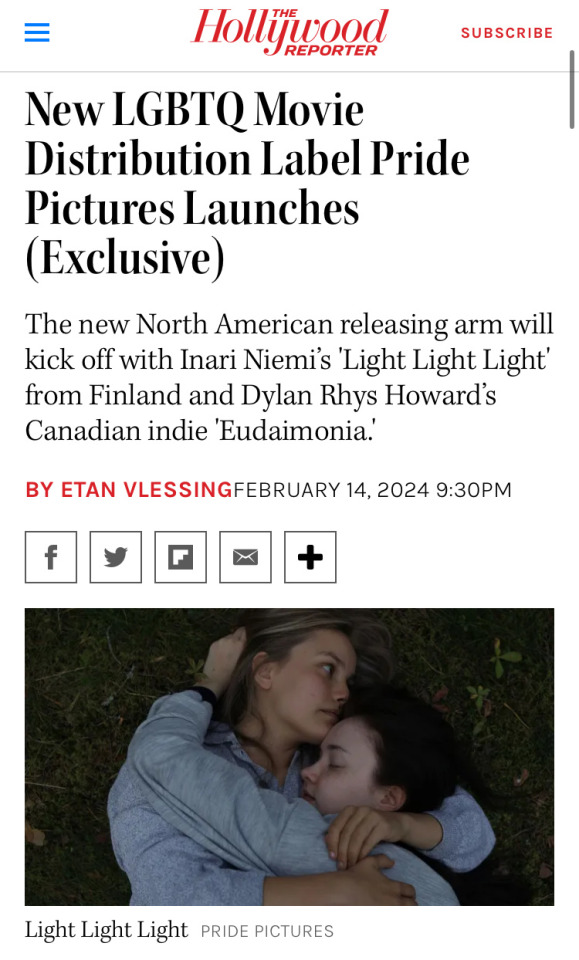
Pride Pictures will aim to bring queer cinema to North American audiences with no language or regional barriers. The company’s launch comes as representation for LGBTQ+ communities is increasing, but the challenge of getting indie queer films into theaters and onto streaming platforms grows.
“There’s a lot of wonderful films made by amazing queer filmmakers from around the world that never get seen by North American audiences other than in festivals, and I’m excited to help some of these films find the audiences they deserve. I really feel that we need to bring light to these amazing films by amazing filmmakers that are underrepresented in the filmmaking community,” Federgreen said in a statement.
Cooper will head up acquisitions at Pride Pictures after serving as director of programming at Durham Film Festival for five years, a producer on the documentary feature and Mexican-Canadian co-production El Gran Salto and working as a festival manager at genre film distributor Raven Banner Entertainment.
“Given the climate that we are in, films can play an important role in education as well as entertaining many,” Cooper added in his own statement.
The Finnish feature Light Light Light from director Inari Niemi, being introduced to international buyers at EFM by Intramovies, is set in the spring of 1986 when, amid the Chernobyl nuclear explosion, Mimi, a young woman, in a small Finnish village fills the life of 15-year-old Mariia with radiating light. Twenty years later, Mariia returns home to take care of her sick mother and memories of that meaningful summer start to surface.
Rhys Howard’s Eudaimonia stars Alexandra Dawkins as Prudence, a young artist with telepathic abilities searching for connection and meaning in a world of her own eccentric design.
Pride Pictures plans a summer 2024 release for Light, Light, Light and Eudaimonia.
4 notes
·
View notes
Text
VIFF 2023 Review: Lynx Man (Ilveskuiskaaja)
Finnish hermit Hannu and his fascination with the endangered Eurasian lynx is the subject of the documentary Lynx Man. The documentary Lynx Man showcases a man who you’d first think to be an eccentric. Over time, you’ll see his work is less of a hobby and more of a mission. The film begins with an old Finnish man finding a dead Eurasian lynx near the street. He picks it up and takes it with…

View On WordPress
#AVEK#Estonia#Film Festival#Film Tampere#Finland#Finnish Film Foundation#Hanna#Hannu#Ilveskuiskaaja#Juha#Kaihlanen#Klara Films#Lynx#Man#Suonpää#Vancouver#VIFF
4 notes
·
View notes
Note
#i just don't think they'd release a movie like this 😅 there'd be waaaaaaay more teasing + an actual photoshoot for promo pics perhaps
#edit. ''jos blind channelista tehtäisiin elokuva'' = if they made a movie about BC#so it's all just hypothetical talk. as in that was one of the questions they were asked during the podcast i guess
Thanks for translating and pointing it out. 💞 I went through Twitter and it looks like there won't be any BC movie in the near future. 😣 The old picture threw me off at first too but I wanted to see a BC movie and more BTS stuff soooo bad (I miss the vlogs😭😭😭) I figured "It's BC, they have everything except money. So why pay for an extra photoshoot if you could just use an old picture?💸" And a tragicomedy would fit them so well. Six Finnish gifted but idiotic best friends trying to make it big but having to overcome all kinds of obstacles and problems (like when they finally made it to ice hall but then their promoter went bankrupt) and having to constantly prove to everyone that they are not insane while they actually are insane. Throw in some hilarious situations and a pair of t-twins that bickers like an old married couple and you have a blockbuster. 😂
I'd TOTALLY watch this tragicomedy too 🥺 And it really sucks that they're not doing the vlogs anymore. Did they ever even give a reason as to why, other than Joel's "YouTube is dead"? Joel you're not gen Z 🙄
They have said that there might be some kind of documentary film about the band at some point in the future though, haven't they? So all hope is not lost! It may not be any time soon, but maybe we'll get the tragicomedy one day 😌🤞
7 notes
·
View notes
Text

This is my now traditional list of favourite movies of the year. These are all films that – as far as I can tell – were first commercially available either in cinemas or on streaming in the UK this year. So it doesn’t include eg, Hit Man or The Holdovers. Other than that, these are solely being judged on: did I like them?
As I did last year, I’ve also written about other stuff I have seen that you might be interested in – which this time turned out to be so long I split it into two: Broadly Mainstream & Documentaries and Arthouse & Indie.
2023, then, the year of Barbenheimer (I saw Barbie, didn’t see Oppenheimer). And the year of the great superhero box office crash. Meanwhile, there were two austere French courtroom dramas critics loved, two films about young women born in Korea but raised elsewhere trying to make sense of their identities that also got excited reviews plus an avalanche of movies featuring cast members of Chicago restaurant TV drama The Bear.
I saw plenty of films, and there weren’t many I think I missed out on. Ridley Scott’s Napoleon felt like a film to watch with friends but we couldn’t sort out a time. Eileen and Dream Scenario sounded interesting but non-essential, but BlackBerry I very much did want to see but couldn’t get round to. Saltburn generated a fair amount of debate, but by most accounts is precisely Ripley x Brideshead set in 2006 with tunes by Flo Rida and MGMT by the director of Promising Young Woman, and that’s a film I don’t need to see.
Some near misses from this list: The Innocent, Alcarrás and Teenage Mutant Ninja Turtles: Mutant Mayhem. Oh, yeah, and maybe the most fun I had in a cinema for what was officially a 2023 release was seeing the 4K etc restoration of Stop Making Sense, but a bit of a scrub-up does not equal an actual new movie. And on that note, here’s the list:
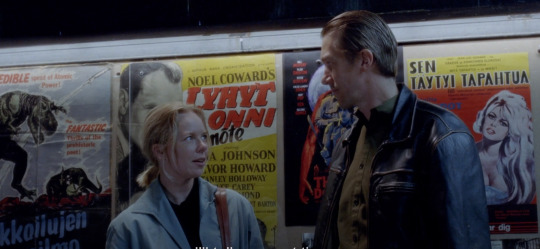
1. Kuolleet Lehdet (Fallen Leaves)
This is recommended cautiously – there are other films on this list I would steer most people towards before this one. But it is a movie I absolutely loved. I think it’s the 18th feature film made by director Aki Kaurismäki in a 40-year career, and easily in his five best. If you’ve never seen a Kaurismäki film, the easiest way to describe them is like Jim Jarmusch movies but Finnish. And if you haven’t even seen a Jarmusch film? Well, his movies are slow (but crucially short!). Most of the characters dress like they are living in the late 1950s or early ’60s and drink in bars that seem to come from that time too, but the films are set in the present day. The characters are usually somewhat on the margins of society and often somewhat lonely. There’s not a lot of dialogue. And, this is very important, they are funny as well as melancholy. In short, this is a very distinctive world that you’re likely to find either very appealing or pretty baffling.
Fallen Leaves is a simple story about a woman and a man who meet and have a series of misconnections while other stuff is happening in their lives. It’s very lovely but if you lose patience within the first 10 minutes, I get it, I really do. But I think it’s great.
Full review here
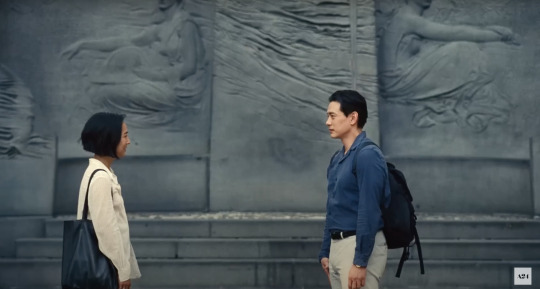
2. Past Lives
We open with someone speculating about the two men and a woman drinking together in a New York bar at 4am – who are they to each other? Then we are whisked back to Seoul a couple of decades earlier, and gradually make our way to that late night and learn who Na Young/Nora (Greta Lee), Hae Sung (Teo Yoo) and Arthur (John Magaro) are. Céline Song’s drama is about friendship and love but also very much about the trauma of (bourgeois) emigration – the sense that not only did you leave a place and its people behind, you left a version of yourself there.
It’s an elegant, restrained yet emotionally raw film. I was going to say it feels in places like a three-hander but would be to forget Hae Sung’s drinking buddies, who provide welcome comic relief. And when your quibbles are as nit-picky as ‘maybe one too many magic-hour shots’, then you’re talking a seriously good movie.
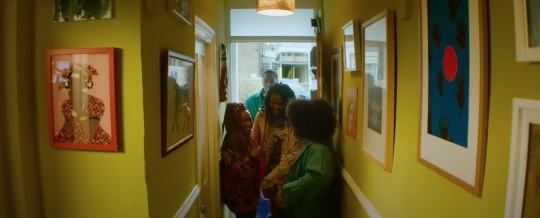
3. Rye Lane
Delightful romantic comedy that manages to both play by the rules of the genre and feel fresh. Girl meets boy at an art show and they spend a day and evening wandering around together and getting into low-stakes misadventures. Set and very tangibly filmed in places I know extremely well* and does so without triggering my ageing South Londoner’s prickly defensiveness. (*In my review, I say that the geography is all plausible. Recently I had dinner with friends who live locally and have seen the film, and they were not buying into the idea that you would buy hot food at Brixton Market and eat it in Brockwell Park – approx 15 minutes walk away. Which I guess makes them even more South London than me...)
Full review here
(Disney +)

4. Fremont
Afghan interpreter for the US military tries to get to grips with life in California. Gruelling social realist drama about trauma and exile? Uplifting/flag-waving account of the power of living free? Broad culture-clash comedy? No? How about ultra low-key indie, filmed in lovely black & white, in which Donya (Anaita Wali Zada) shuffles between her job making fortune cookies and her sessions with an eccentric psychiatrist (Gregg Turkington). The b&w, the gentle eccentricity of many of the characters, how little Donya says even though she is on-screen in almost every scene, have prompted comparisons with Jim Jarmusch, which I think are fair, although there’s much less of the fetish-of-cool stuff here (also, as it happens, in none of the Jarmusch films with a sole protagonist is that character female.) Very little happens, and I really liked it.

5. Anatomie d’un chute (Anatomy Of A Fall)
Bloke falls to his death out of the window of his house up in the snowy French mountains – question is: accident, suicide, murder? If murder, the only suspect seems to be his widow (Sandra Hüller), a writer who doesn’t much like living in France, especially not in the mountains, and also doesn’t feel confident expressing herself in French (the bulk of her dialogue is in English), attitudes that doesn’t seem likely to endear her to the local media or legal system. Because, yes, this is a courtroom drama, if very much not one in the manner of John Grisham. It’s an intense, relentless film, one almost without a score (what music there is – and it’s important to the plot and the film – is mostly diegetic, but there is a little cheating on that). Hüller is very good as the protagonist we’re not meant to be sure whether to root for (although I’m inherently sympathetic to anyone who would rather be in London than stuck up a mountain, however beautiful that mountain is). A few side thoughts: the kid made me think of The Omen, the prosecutor of reality TV judge Rob Rinder and I would have sworn blind that the defence lawyer was in some band that had an EP out on Creation Records in 1988, only the actor is about 15 years too young for that.
(It’s a very good film.)

6. Asteroid City
Wes Anderson’s latest comes with multiple levels of story within story that felt unnecessary the first time I saw it – on rewatch they made more sense. But the main narrative – of parents and their children fetched up in a sun-baked nowhere town in the 1950s – I found effective and very moving both times. Anderson’s films always have at least an undertone of sadness, but this is probably his most directly mournful picture since Moonrise Kingdom. As usual with Anderson, the cast is ridiculously stacked – Tom Hanks fits in surprisingly well – and there are actors (Ed Norton, Adrien Brody) who are vastly better in his films than they generally are in anyone else’s. I laughed, I cried – no, I really did, and I think this was the only film this year that made me do both.

7. Killers Of The Flower Moon
Is Killers Of The Flower Moon a masterful piece of film-making, a supreme example of Martin Scorsese’s novelistic ability to guide a camera to the details that bring a culture to life, featuring a luminous performance from Lily Gladstone and telling an important story? Yes. Is it a sadistically long* movie that runs you through the same incidents three and sometimes four times, one that inflicts on us many scenes of Bob De Niro and Leo DiCaprio doing that terrible Method-bore jutting lip/downturned mouth thing at each other? Yes, that too.
It tells an ugly tale from American history – we’re in the 1920s and oil is discovered on Osage land in Oklahoma, making that nation’s members all very rich. Inevitably, tragically, a lot of white folk aren’t having that, and start scheming about how they will get their hands on the wealth. What I wasn’t expecting is that along with the murder the film’s title previews, the plot involved lots of white guys marrying Osage women. It’s fascinating and horrible and Scorsese tells it with great images and some humour and there’s great casting. But it’s still unnecessarily long (think of the span of time covered in GoodFellas – and that came in at a respectable 2hrs 26mins).
*In the debate about whether there should be intermissions in this movie, some people were saying. ‘Who are you to presume to know more about films than Scorsese and his legendary editor Thelma Schoonmaker?’ Seems like a fair point… except: these are people who seemed to have thought Polar Expressing De Niro in The Irishman looked OK, so I’m saying their judgement isn’t what it was.
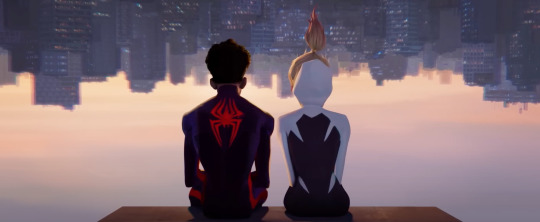
8. Spider-Man: Across The Spider-Verse
By and large, the critical response to Across The Spider-Verse was split between those who felt it was even better than Into The Spider-Verse and those who thought it was good but lacked the ‘blimey, look at everything they are managing to do and oh my god it makes so much more sense to do superhero movies as animation than clunky CGI’ shock-of-the-new of the first film. The latter is basically my position: this is a very good film but Into The Spider-Verse was a near-instant classic.* ATSV is not as funny, and suffers (for me) from the fact that much of it happens at a larger scale and there’s more multiverse stuff to get your head around etc, and it ends on a cliffhanger (boo!) But it’s still easily the best big budget/action film of the year for my money.
(*Although somehow only 7th on my films of 2018 list! In retrospect, I’d move it up, but still only to maybe 3rd – 2018 turns out to have been a great year for films I like.)
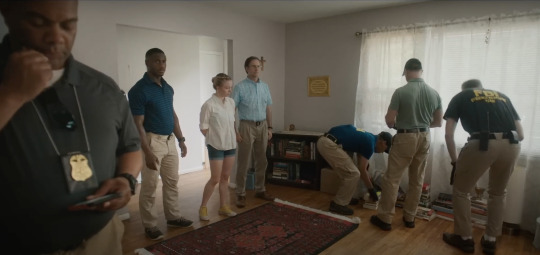
9. Reality
If you are phobic to excruciating small talk, you should probably avoid this film. The dialogue comes entirely from an FBI transcript, and the agents spend a very long time trying to put their suspect at ease before finally getting to the questions about what she allegedly did. So many awkward attempted bits of connection about pet ownership and going to the gym…
It starts with Reality Winner (yes, that is the name of a real person), played by Sydney Sweeney, driving home. Before she’s out of the car, two FBI agents have come up to her window. Almost all of film is them and her standing outside her bungalow doing the prelims for the questioning and then finally going inside to interrogate her. It feels like real time but it’s not quite that. The look of the film is quite raw, there’s no score, it feels very plain although there are a couple of welcome weird touches.
It’s an uncomfortable watch, but if you can stay with it, it’s an impressive and rewarding film.

10. All The Beauty And The Bloodshed
This documentary wants to tell you two important stories. One is about the campaign to get artistic institutions to distance themselves from the Sackler family, the generous donors who (alas) made their money from Valium and Oxycontin. The second is a history of assorted art movements and bohemian scenes of the late 20th-century US. The person whose life connects all this is the photographer Nan Goldin (the art world’s most influential figure, apparently). Goldin’s pictures are also a key part of this film’s visual appeal, and the director Laura Poitras is well of aware of that, and happy to give them the space they deserve. Quite a brutal watch, but worth it.
Full review here
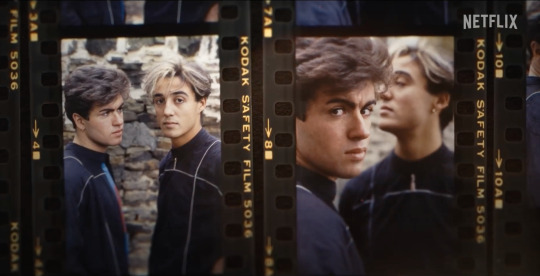
11. Wham!
The angle this documentary takes gives us the story of Andrew Ridgeley and George Michael as a benign version of Single White Female with a touch of All About Eve crossed with Pygmalion. Here, the person who has had their look and career appropriated turns out to have been coaching the impersonator and at the end wishes them well as they soar off into superstardom.
That’s how I’ve long understood the Wham! story but this fills in the details and adds some ambiguity: Ridgeley enjoyed songwriting and being tagged the ‘talentless one’ clearly hurt him. The image choices that led some to assume George Michael was gay (many years before he came/was forced out) were actually made by his busily straight bandmate – we were right for the wrong reasons, which is to say wrong. But what I found fascinating is that once George* – who had been strong-armed by Andrew into a music career – started to understand how good he could be, he developed a Michael Jordan-esque competitive fury.
The voices of the two Wham! members provide the bulk of the narrative, added to by lots of excellent archive. The short span of Wham!’s career is a huge plus for a pop documentary - it avoids the usual problem of what to do about the later stuff only the subjects of the film care about. Just like the band, the documentary knows how to stop when the going is good.
*I can’t treat ‘Michael’ as a surname in this context.
(Netflix)
#films of the year#2023 movies#films of 2023#films of the year 2023#movies of 2023#movies of the year 2023
2 notes
·
View notes
Text
WILL IT BLEND
RESEARCH CONTINUTED
After having my own take on double exposures I started looking into other photographers for inspiration and improvements I could make upon my own work.
CHRISTOFFER RELANDER
This was the first photographer I looked into. His use of nature and human combinations was really nice. This cutout/silhouette use contained all the details to one place which has made sure that there's enough negative space for the viewer to relax in too.
I like this artists approach to double exposures.




MOMA - Constantin Brâncuși
I looked into MOMA and the artists features here. Looking at Constatins mixture of self portrait and plants. This black and white imagery makes it look as though the plant is growing with him which feels like a nice metaphor. I like how even though there's stuff going on in the background it seems like him and the plant are framed in such a way that highlights them as the main obvious subject.

RICHARD PJ LAMBERT
TAMARA LICHTENSTEIN
This is my favourite image that I want to base some experiments off of using people in my photos too to combine both an individual with buildings and nature to see what kind of perceptions come from this. I like the balance of yellows and blues in this it really makes a calm reflective environment.

Another image I like is this combination of buildings and a person using different zoom lenses to create a contrast of detail from the zoom out of the building to the zoom of the face. This is something I'd like to channel through my work as humans are natural mammals in the environment which could link quite nicely to nature vs manmade.

OTHER SOURCES
2 notes
·
View notes
Text
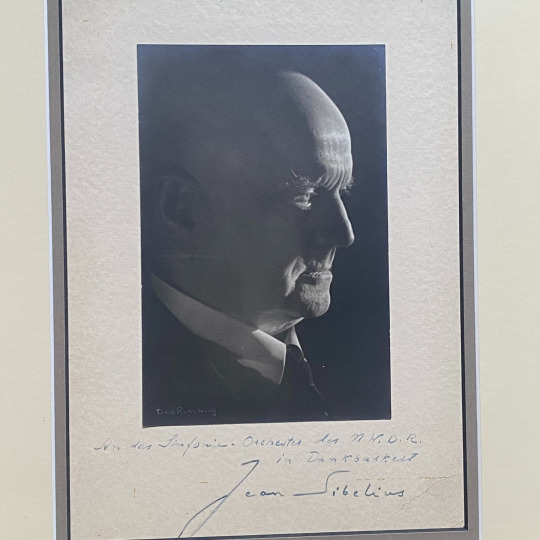

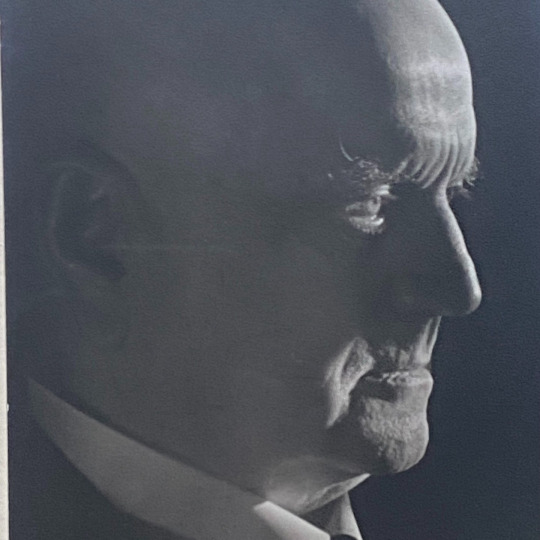
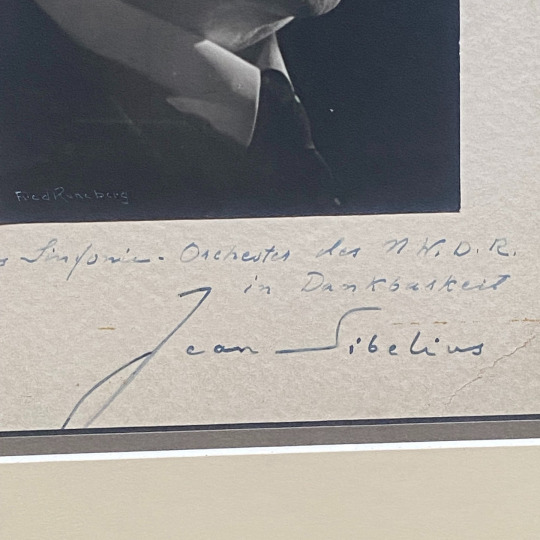
OTD in Music History: Jean Sibelius (1865 - 1957) dies peacefully at his iconic home (named "Ainola" after his beloved wife Aino) in Järvenpää, Finland, a few weeks shy of his 92nd birthday. One of the greatest musical nationalists of the 20th Century, Sibelius remains a Finnish cultural icon who is widely recognized as one of the most important symphonists of the modern era. Sibelius’s international fame can be traced back to the tremendous success of his ever-popular tone poem "Finlandia" in 1899, and his stature only continued to grow during the next decade. His good friend Ferruccio Busoni (1866 - 1923) premiered his 2nd Symphony in Berlin in 1901, and noted British composer Granville Bantock (1868 - 1946) commissioned his 3rd Symphony in 1907. The justly-famous Violin Concerto (1903) also dates from this early period, although Sibelius didn’t published what are arguably his finest works -- the 5th Symphony (1919), the 6th Symphony (1923), the 7th Symphony (1924), and the tone poem "Tapiola" (1925) -- until after World War I. But then came the silence. For the last 30 years of his life, Sibelius suffered from one of the most monumental writers' blocks in musical history. He produced next to nothing, although rumors (some stoked by Sibelius himself) continued to swirl that he was preparing an 8th symphony. According to his wife, one day in the mid-1940s, the elderly Sibelius got drunk and then sat down and burned a tremendous amount of manuscript material in the fireplace at Aino -- and that was that. He apparently found this bonfire to be cathartic, and no substantial manuscripts were found after his death a decade later… PICTURED: A c. 1950's headshot photograph of Sibelius, which he has signed and inscribed "An das Sinfonie-Orchester des N.W.D.R. in Dankbarkeit." (The North West German Radio Symphony Orchestra was a radio orchestra founded by British occupation authorities after World War II.)
This historic clip shows Jean Sibelius at his home, Ainola. The first moving images of Jean Sibelius dates from the spring of 1927, when he was filmed at Ainola by the Finnish cinematographers Heikki Aho and Björn Soldan. Aho and Soldan were the sons of the noveliest Juhani Aho, and had grown up in the close vicinity of Sibelius and his family. In the 1927 film, we see an urbane and relaxed Sibelius on the Lake Tuusula road. The images are striking: in his bowler hat, the composer has a casual, Anglo-Saxon air which differs from later portrayals of the Karsh-ian Sibelius as the brooding and forbidding musical titan. The documentary also provides intimate glimpses of family life at Ainola: we see a happy Aino in the role of home-maker and her daughters picking apples in the garden (one runs up the path that would eventually lead to Sibelius's final resting place). Their father reads the newspaper and contentedly puffs on his cigar. In one scene, Soldan's camera catches the composer at work at the piano; another shows his daughter Margareta playing a violin solo, caught against the light filtering through a window. In 1945, shortly before his 80th birthday, Sibelius agreed to be filmed again by a Finnish film team. This time, Aho and Soldan show us a very different Sibelius, the aged composer watching the forests, cranes and lakes, full of autumnal nostalgia.
#classical music#music history#composer#classical composer#classical studies#maestro#Jean Sibelius#Sibelius#classical musician#classical#classical musicians#classical voice#classical history#musician#musicians#historian of music#music education#concerto#concert#virtuoso#music#history#Historic Footage#Footage
4 notes
·
View notes